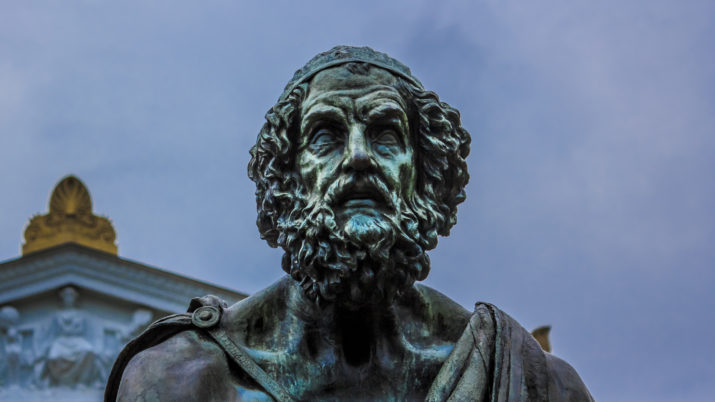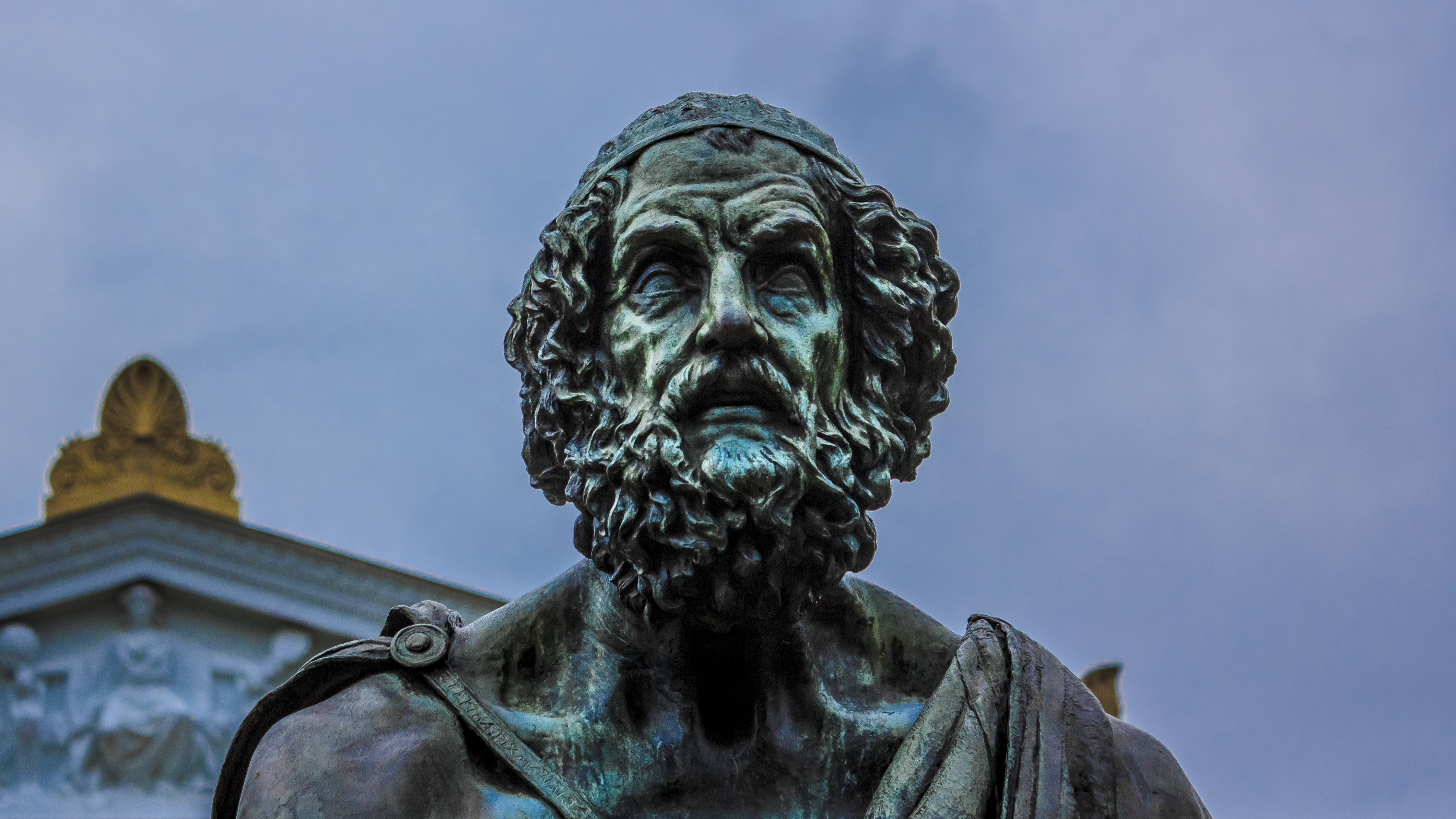
“Now the crucial paradox which confronts us here is that the whole process of education occurs within a social framework and is designed to perpetuate the aims of society… as one begins to become conscious one begins to examine the society in which he is being educated. The purpose of education, finally, is to create in a person the ability to look at the world for himself, to make his own decisions… To ask questions of the universe, and then learn to live with those questions, is the way he achieves his own identity… The obligation of anyone who thinks of himself as responsible is to examine society and try to change it and to fight it – at no matter what risk. This is the only hope society has. This is the only way societies change.”
—James Baldwin, “Talk to Teachers”
COURSE DESCRIPTION AND OBJECTIVES
Much like the Core Curriculum, this course aims to equip students with critical tools for approaching, reading, and striving with literary and philosophical texts—ancient as well as modern. To this end, we will be working closely with a set of texts that range in date from the 8th/7th c. BCE to the 20th century CE. Our seminar will operate on the assumption that we cannot know “what” these texts say or “what” their authors mean unless we come to grips with how they say what they say and how they mean what they mean. In pursuit of some answers, we will master the skill of reading quickly but carefully, balancing attention to the literary craft of our texts with scrutiny of their underlying arguments and agendas. Ultimately, however, none of this will matter much if you are not convinced by term’s end of one (nowadays far from universally accepted) claim: that becoming a good reader of texts can make you a more constructive and more empowered contributor to your community and your society. It will be the instructors’ responsibility to pitch this claim to you, and your responsibility to question it.
We will work to link students’ natural appetites for justice with their intellectual hunger for knowledge, putting our readings in conversation with current issues of justice and, we hope, cultivating a sense of intellectual and moral courage. Each text has been paired with a set of themes that might help to orient us as we grapple with some of the key discourses structured into and perpetuated through our texts: self/Other, class/status, gender/sex, race/ethnicity. The thematic pairings are not meant to confine or limit our critical intervention; you are more than welcome to resist the thematic pairings and/or propose your own. As the term progresses, we will encourage you to apply your critical skills to the scrutiny of (and resistance to) this syllabus. Why read these texts/authors (and not others) in this particular order? What is at stake in what, whom, and how we choose to read?
BOOKS
- Homer, Odyssey (Harper) W.E.B. Du Bois, Souls of Black Folk (Dover)
- Nabokov, Lolita (Vintage) Claudia Rankine, Citizen (Vintage)
- Shakespeare, Othello (Pelican) Toni Morrison, Song of Solomon (Vintage)
- Sophocles, Antigone (Chicago) James Baldwin, The Fire Next Time (Vintage)
- Anna Akhmatova Requiem (Handout) Kafka Metamorphosis (Norton?)
- Dostoevsky The Meek One (Handout)
We will hit the ground running: for our first class, you will be expected to have read a healthy chunk of the Odyssey (more details below under “Readings”). The texts on our syllabus are demanding; as you read, you will likely be tempted to go off with friends, watch your favorite show, or stroll around aimlessly. Take breaks when you need to, but do not give up: read all the way through. We also HIGHLY recommend reading with a pen in your hand so that you can annotate, or put your thinking onto the page: there is no one right way to do this. You can jot down your notes and impressions, use a color-coded system, leave reminders to re-read the confusing parts, make jokes in the margins…
READING SCHEDULE
| Date | Topic | Session and Reading | Optional Supplements for Enrichment |
| 9/4 | Homecoming | Homer, Odyssey, Bks. 1, 4-6 | Link to Audiobook, Lecture 1-11, Homer Background, Story of the Trojan War, Reubens’ Judgment of Paris
Like Telemachus: Children of Incarcerated Parents New (First) Translation of the Odyssey by a Woman Mary Beard: The Public Voice of Women |
| 9/6 | Honor | Odyssey, Bks. 1, 4-6 | Lecture 1-11 part 2 |
| 9/11 | Deception | Odyssey, Bks. 8-13 | Lecture 12-24, Romare Bearden Black Odyssey
Margaret Atwood: The Penelopiad, Siren Song The Power of Stories: Reading Gives People Hope |
| 9/13 | Justice | Odyssey, Bks. 16-24 | Lecture 12-24 part 2, BBC Discussion, O Brother, Where Art Thou?, Paris Review: On the 12 Maids at the End |
| 9/15 | Response 1 due 10pm Saturday | ||
| 9/18 | Resistance | Sophocles, Antigone 1-682 | Link to E-text (not same trans), Greek Tragedy Overview
Mary Beard: Women In Power (thanks Fáith!) and Herland, the story that she opens with, by Charlotte Perkins Stetson Gilman |
| 9/20 | Justice | Antigone, 683-end | Version of Play; Podcast: History of Thebes |
| 9/25 | Power | Shakespeare, Othello, Act I | OED; E-Text of Othello, Elizabethan Theater, Act I, i Branagh Film, |
| 9/27 | Truth | MEET IN FRONT OF JEROME GREEN 6pm FOR Theater of War presents Antigone in Ferguson, Harlem Stage, 150 Convent Ave, Harlem, harlemstage.org. | Swander: The Nature of Drama, More Swander Articles, |
Published on November 8, 2018.
Photo: Statue of Homer, University of Virginia | Shutterstock
Click here to read Nicole Callahan’s essay, “Why We Must All Be Philosophers.”





